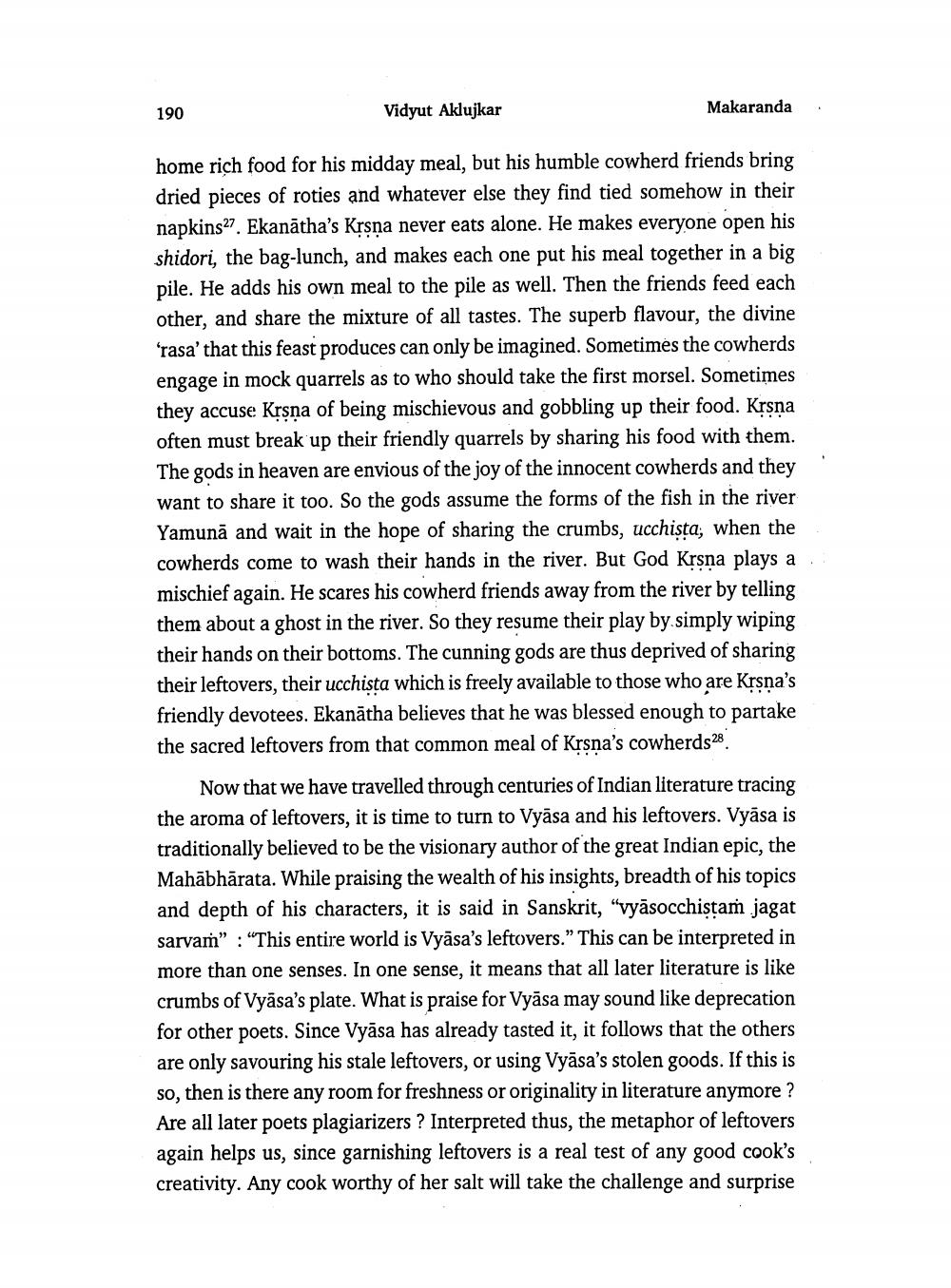________________
190
Vidyut Aklujkar
Makaranda
.
home rich food for his midday meal, but his humble cowherd friends bring dried pieces of roties and whatever else they find tied somehow in their napkins27. Ekanātha's Krsna never eats alone. He makes everyone open his shidori, the bag-lunch, and makes each one put his meal together in a big pile. He adds his own meal to the pile as well. Then the friends feed each other, and share the mixture of all tastes. The superb flavour, the divine ‘rasa' that this feast produces can only be imagined. Sometimes the cowherds engage in mock quarrels as to who should take the first morsel. Sometimes they accuse Krsna of being mischievous and gobbling up their food. Krsna often must break up their friendly quarrels by sharing his food with them. The gods in heaven are envious of the joy of the innocent cowherds and they want to share it too. So the gods assume the forms of the fish in the river Yamunā and wait in the hope of sharing the crumbs, ucchista; when the cowherds come to wash their hands in the river. But God Krsna plays a mischief again. He scares his cowherd friends away from the river by telling them about a ghost in the river. So they resume their play by simply wiping their hands on their bottoms. The cunning gods are thus deprived of sharing their leftovers, their ucchista which is freely available to those who are Krsna's friendly devotees. Ekanātha believes that he was blessed enough to partake the sacred leftovers from that common meal of Krsna's cowherds28
Now that we have travelled through centuries of Indian literature tracing the aroma of leftovers, it is time to turn to Vyāsa and his leftovers. Vyāsa is traditionally believed to be the visionary author of the great Indian epic, the Mahābhārata. While praising the wealth of his insights, breadth of his topics and depth of his characters, it is said in Sanskrit, "vyāsocchistam jagat sarvam" : "This entire world is Vyāsa's leftovers." This can be interpreted in more than one senses. In one sense, it means that all later literature is like crumbs of Vyāsa's plate. What is praise for Vyāsa may sound like deprecation for other poets. Since Vyāsa has already tasted it, it follows that the others are only savouring his stale leftovers, or using Vyāsa's stolen goods. If this is so, then is there any room for freshness or originality in literature anymore ? Are all later poets plagiarizers? Interpreted thus, the metaphor of leftovers again helps us, since garnishing leftovers is a real test of any good cook's creativity. Any cook worthy of her salt will take the challenge and surprise




